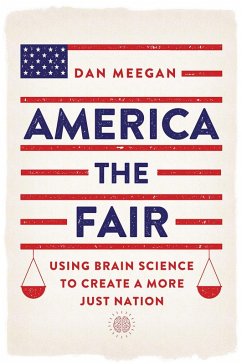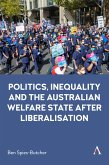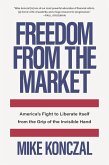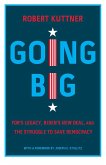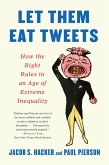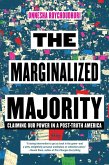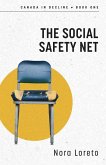What makes a person liberal or conservative? Why does the Democratic Party scare off so many possible supporters? When does our "injustice trigger" get pulled, and how can fairness overcome our human need to look for a zero-sum outcome to our political battles?
Tapping into a pop culture zeitgeist linking Bugs Bunny, Taylor Swift, and John Belushi; through popular science and the human brain; to our political predilections, arguments, and distrusts, Daniel Meegan suggests that fairness and equality are key elements missing in today's society. Having crossed the border to take up residency in Canada, Meegan, an American citizen, has seen first-hand how people enjoy as rights what Americans view as privileges. Fascinated with this tension, he suggests in America the Fair that American liberals are just missing the point. If progressives want to win the vote, they need to change strategy completely and champion government benefits for everyone, not just those of lower income. If everyone has access to inexpensive quality health care, open and extensive parental leave, and free postsecondary education, then everyone will be happier and society will be fair. The Left will also overcome an argument of the Right that successfully, though incongruously, appeals to the middle- and upper-middle classes: that policies that help the economically disadvantaged are inherently bad for others.
Making society fair and equal, Meegan argues, would strengthen the moral and political position of the Democratic Party and place it in a position to revive American civic life. Fairness, he writes, should be selfishly enjoyed by everyone.
Tapping into a pop culture zeitgeist linking Bugs Bunny, Taylor Swift, and John Belushi; through popular science and the human brain; to our political predilections, arguments, and distrusts, Daniel Meegan suggests that fairness and equality are key elements missing in today's society. Having crossed the border to take up residency in Canada, Meegan, an American citizen, has seen first-hand how people enjoy as rights what Americans view as privileges. Fascinated with this tension, he suggests in America the Fair that American liberals are just missing the point. If progressives want to win the vote, they need to change strategy completely and champion government benefits for everyone, not just those of lower income. If everyone has access to inexpensive quality health care, open and extensive parental leave, and free postsecondary education, then everyone will be happier and society will be fair. The Left will also overcome an argument of the Right that successfully, though incongruously, appeals to the middle- and upper-middle classes: that policies that help the economically disadvantaged are inherently bad for others.
Making society fair and equal, Meegan argues, would strengthen the moral and political position of the Democratic Party and place it in a position to revive American civic life. Fairness, he writes, should be selfishly enjoyed by everyone.
Dieser Download kann aus rechtlichen Gründen nur mit Rechnungsadresse in A, D ausgeliefert werden.

